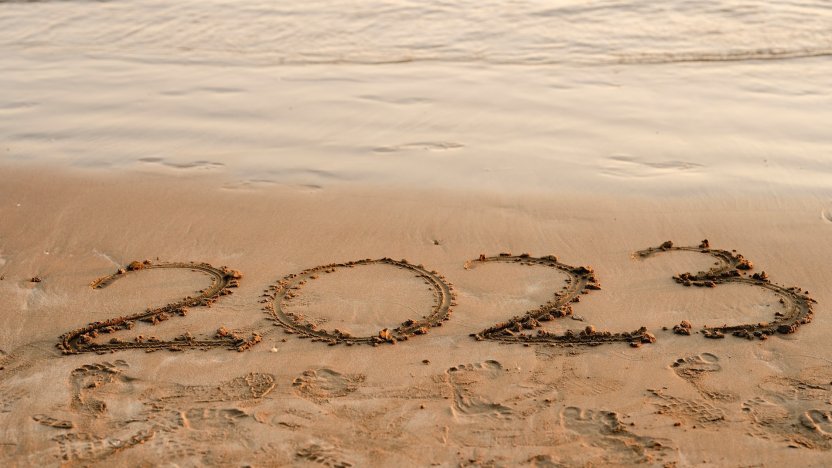International trademark registration: Update to Nice Classification at start of 2023

A new edition of the Nice Classification system for international trademark registration will become available on 1 January 2023. We outline the changes and their implications for trademark applicants.
To register an international trademark registration (IR), you must specify the classes of goods and/or services for which you intend to use your trademark. These are specified according to an internationally recognised classification of goods and services (the Nice Classification), consisting of 34 classes of goods and 11 classes of services. Among other things, this classification system is used to facilitate prior examination of trademark availability. A new edition of the Nice Classification system (the twelfth edition) will become available on 1 January 2023.
International trademark registration classification: Moving with the times
The landmark IP translator ruling by the Court of Justice of the EU (CJEU) codified into EU law the obligation to define goods and services with sufficient clarity and precision. For instance, the term ‘machinery’ would not be considered clear enough for a registration in Class 7, whereas the term ‘agricultural machinery’ would be.
For brand owners to be able to meet this criteria, the Nice Classification system is updated by the World Intellectual Property Organization (WIPO) every year to ensure that, as new products and services are created, relevant terms are added to the classification. Otherwise, it would not be possible to specify the class of goods and/or services in a manner that is sufficiently ‘clear and precise’. Consider the advent of smartwatches, for example.
Implications for applicants
WIPO has recently announced the latest update to the Nice Classification, which will become available on 1 January 2023. Applications for international trademark registration on or after this date are required, therefore, to specify protection using this latest edition of the Nice Classification.
If you have filed an international trademark registration before this change comes into force, there is no need to make adjustments in the first instance, so long as your goods and services are specified in accordance with IP Translator and thus contain a sufficiently clear description. If it is not, it is possible (and recommended) to make adjustments.
The new edition of the Nice Classifications may be helpful in this regard and it is worth reviewing the new list and/or speaking to a trademark attorney if you have questions or concerns about a specific class.
The new edition contains a number of interesting changes for both goods and services, some of which we outline below.
Classification of goods – what has changed?
- Class 3: Now includes ‘laundry balls filled with laundry detergents' and 'teeth whitening pens'.
- Class 6: The explanatory note has been changed to state that 'certain dispensing apparatus of metal, automatic or non-automatic, for example, towel dispensers, queue ticket dispensers, dispensers for dog waste bags, toilet paper dispensers' will be covered under this class.
- Class 9: 'Downloadable digital files authenticated by non-fungible tokens [NFTs]', 'computer network routers', 'portable document scanners' and 'cases for smartphones incorporating a keyboard' have been added. In addition, 'downloadable computer software for managing cryptocurrency transactions using blockchain technology' has been changed to 'downloadable computer software for managing crypto asset transactions using blockchain technology'.
- Class 10: Now includes 'respiratory masks for medical purposes' and 'massage chairs with built-in massage apparatus'. Furthermore, 'hospital beds' are no longer excluded.
- Class 15: 'Musical instruments for children' has been added.
- Class 19: 'Smart glass for building' has been added.
- Class 20: The explanatory note has been changed stating that certain non-metal dispensing apparatus, automatic or non-automatic, e.g. towel dispensers and dispensers for dog waste bags, will be covered under this class. This is subject to the function or purpose of the goods which may affect the classification.
- Class 24: Now includes 'yoga blankets' and 'yoga towels'.
- Class 28: Now includes 'toy musical instruments'.
- Class 30: 'Cocoa nibs' and 'edible beeswax' have been added.
- Class 32: Now includes 'non-alcoholic beer' (for more on this topic, see our article ’What the 'nolo' drinks trend means for trademark owners’).
Classification of services – what has changed?
- Class 36: 'Real estate affairs' has been changed to 'real estate services' and 'financial advice relating to tax' has been added.
- Class 41: Now includes 'car subscription services'.
- Class 42: 'Information technology [IT] consultancy' has been changed to 'information technology [IT] support services [troubleshooting of software]' and 'cryptocurrency mining/crypto mining' to 'mining of crypto assets/crypto mining'. In addition, 'information technology services provided on an outsourcing basis' has been deleted while 'scientific research in the field of genetics' has been added.
- Class 45: 'Personal and social services rendered by others to meet the needs of individuals' has been deleted and 'dating services, online social networking services; funerary services; babysitting' added.
It is advisable to check regularly whether the goods and services specified in your trademark registrations are up to date. By working with an attorney, you can review the goods and services descriptions and make adjustments where necessary. Speak to your Novagraaf attorney for advice today or contact us below.
Noa Rubingh works in Novagraaf’s Knowledge Management department.